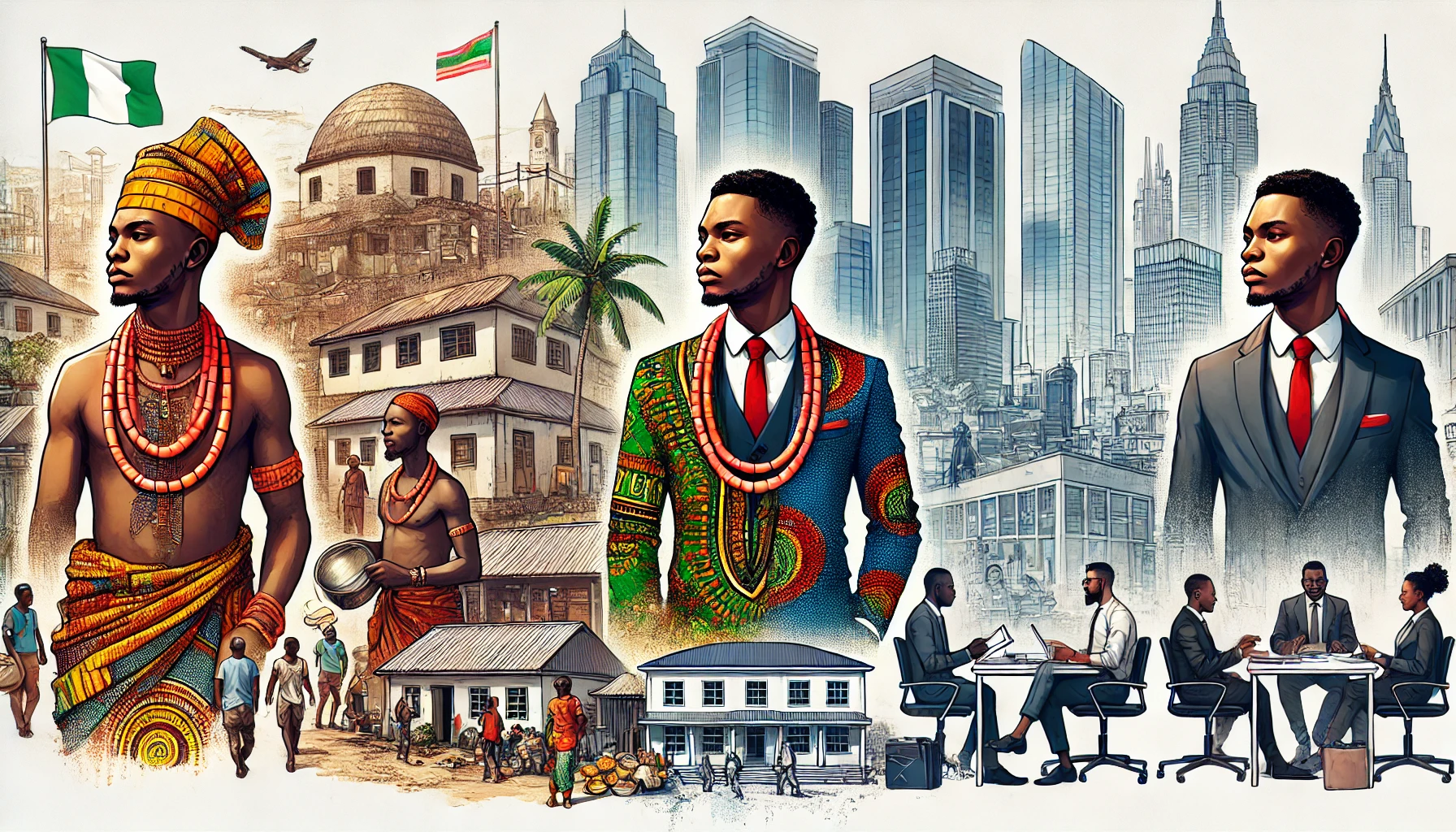Citation:
Jemiluyi, Omotayo. 2025. “Being African, Staying African: Constructing and Preserving African Masculinities among Nigerian Men in the United States.” National Identities, 1–20. https://doi.org/10.1080/14608944.2025.2514044
Summary:
This article explores how Nigerian men living in the United States construct and preserve their identities as African men within a diasporic setting. Based on in-depth interviews with 17 Nigerian men, the study uses thematic narrative analysis to uncover how these individuals define African manhood, critique imposed labels, and actively maintain specific cultural values abroad. Some participants resisted the term African man as overly generalized, while others embraced it as a powerful symbol of shared origin and rootedness. Across narratives, the desire to retain leadership values, uphold cultural pride, and model responsibility emerged as key strategies for preserving Africanness in the face of assimilation, racialization, and cultural shifts in the West. The article contributes to evolving conversations around diaspora, gender, and transnational African identity.
Behind the Work:
This article is part of a broader research project I began in November 2024 that focused on understanding Nigerian masculinities in the United States. The project was first sparked during a fellowship meeting at the Interdisciplinary Migration Studies Institute (IMSI) and the meeting that day challenged me to think about gender, migration, and identity as entangled experiences, and consider exploring a project related to my research interests.
As I conducted interviews with Nigerian men across different states and life stages, one theme emerged with striking consistency, which is a strong, almost sacred commitment to remaining African. Many participants spoke passionately about the importance of “not forgetting who we are as African men” and that thread, that urgency, became the focus of this article, and the study also documented some of the challenges faced in the process of identity preservation in a diasporic context like the United States.
Key Ideas:
- African masculinities in the diaspora is plural, contested, and shaped by both heritage and adaptation.
- Some participants viewed African manhood as a meaningful identity marker; others found it too generalized for a continent of such cultural diversity.
- Key elements of cultural preservation included:
- Upholding leadership and responsibility
- Expressing pride in one’s origins
Relevance:
This work contributes to scholarship on diaspora studies, African masculinities, cultural preservation, and identity formation. It is especially relevant for researchers in gender studies, migration studies, and African diaspora studies, as well as for cultural practitioners and community organizers working with African immigrant populations.
Read the Full Article:
Click here to access the article


